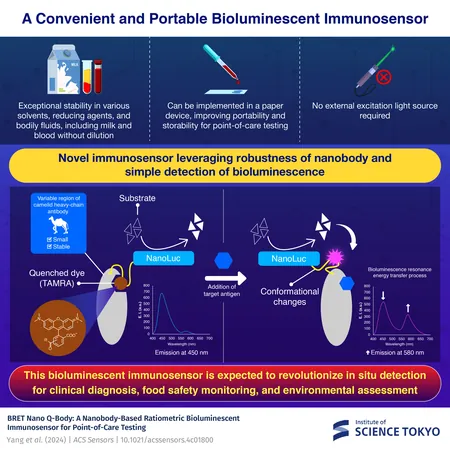
New Study Uncovers Shocking Link Between Ultraprocessed Foods, Seed Oils, and Colon Cancer Risks!
2024-12-17
Author: Jacques
In a groundbreaking study recently published in the esteemed journal *Gut*, researchers have discovered alarming connections between ultraprocessed foods, high levels of omega-6 fatty acids found in seed oils, and the growth of colon cancer tumors. This research could shake up dietary recommendations in the fight against cancer!
The study examined the lipid environments surrounding colon cancer tumors from 81 patients, utilizing advanced mass spectrometry technology. The findings reveal that these tumor microenvironments are predominantly composed of pro-inflammatory lipid mediators, which include high levels of omega-6 fatty acids. Inflammation has long been associated with various cancers, including colon cancer, raising critical questions about our dietary choices.
As ultraprocessed foods become a staple in many people's diets, experts warn that they may contribute to an immune-suppressing environment around tumors, empowering them to flourish. Dr. Timothy Yeatman, a co-author of the study and a professor at the University of South Florida, emphasizes that these omega-6 fatty acids could displace omega-3s in our diets, ultimately leading to chronic inflammation and a weakened immune response. “Instead of effectively combating tumor cells, the immune system may struggle to function, letting dangerous mutations take hold,” he explains.
The recent appointment of Robert F. Kennedy Jr. as the head of the U.S. Department of Health and Human Services has brought renewed attention to the debate surrounding seed oils. Kennedy has been a vocal critic, warning that Americans are effectively being “unknowingly poisoned” by these ingredients commonly found in ultraprocessed foods.
While the study indicates an association between ultraprocessed foods and colon cancer, researchers caution that it does not definitively conclude that seed oils are the root cause. Experts acknowledge that colon cancer risk is multifactorial, influenced by genetic predisposition, lifestyle choices, and environmental factors. Dr. Wael Harb from the MemorialCare Cancer Institute highlights this complexity, noting the importance of considering a person's complete health profile.
Despite the concerns raised, it’s important to remember that seed oils are not inherently unhealthy. The American Heart Association (AHA) supports the use of polyunsaturated fats like omega-6s in moderation, citing their potential to lower bad cholesterol levels and reduce heart disease risk. Studies have even shown that omega-6 fatty acids in moderation may support better cardiovascular health.
So, what can you do to lower your colorectal cancer risk? Medical professionals recommend focusing on a diet rich in whole, minimally processed foods. Integrating a variety of fruits, vegetables, whole grains, legumes, nuts, and lean proteins such as fish and poultry can enhance your nutritional profile. It's equally vital to minimize the intake of red and processed meats, sugars, and ultraprocessed options.
To mitigate potential risks associated with high omega-6 intake, consider increasing omega-3 fatty acid consumption from sources like fatty fish (salmon, sardines, and mackerel), walnuts, and flaxseeds. If you have specific concerns about colon cancer, or if it runs in your family, consulting with a healthcare professional for tailored dietary advice and screening options is essential.
This startling research sends a clear message: make informed food choices, and your plate could play a pivotal role in your overall health! Stay tuned as more revelations emerge in the ongoing conversation about diet, disease, and prevention!









 Brasil (PT)
Brasil (PT)
 Canada (EN)
Canada (EN)
 Chile (ES)
Chile (ES)
 España (ES)
España (ES)
 France (FR)
France (FR)
 Hong Kong (EN)
Hong Kong (EN)
 Italia (IT)
Italia (IT)
 日本 (JA)
日本 (JA)
 Magyarország (HU)
Magyarország (HU)
 Norge (NO)
Norge (NO)
 Polska (PL)
Polska (PL)
 Schweiz (DE)
Schweiz (DE)
 Singapore (EN)
Singapore (EN)
 Sverige (SV)
Sverige (SV)
 Suomi (FI)
Suomi (FI)
 Türkiye (TR)
Türkiye (TR)